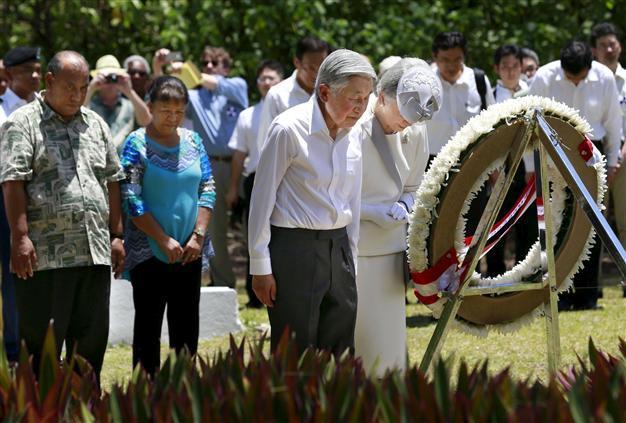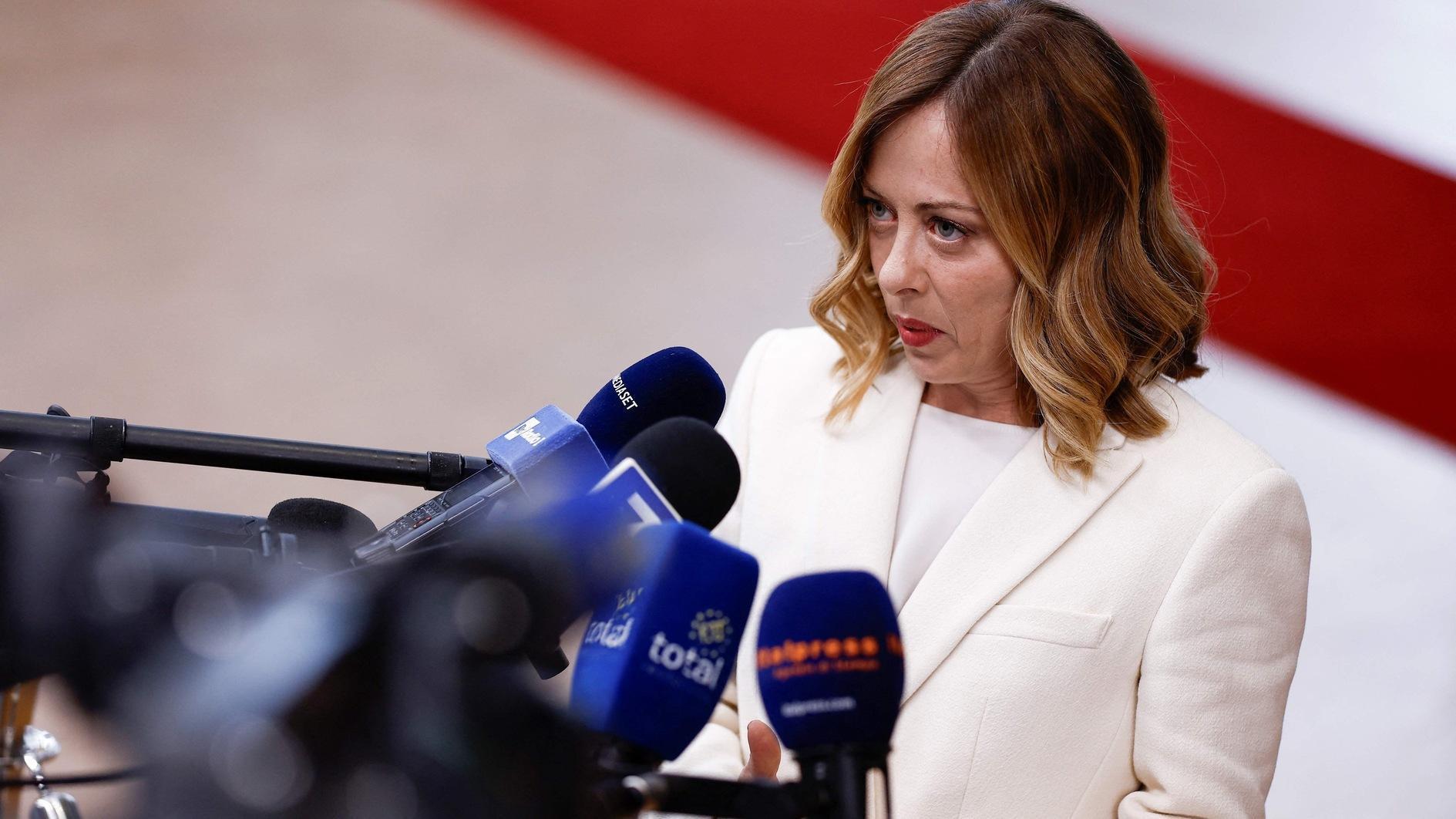Japan Emperor mourns Japanese, US war dead on Pacific isle
TOKYO - Reuters

Japan's Emperor Akihito (2nd R) and Empress Michiko (R) pay silent tribute to mourn war victims at the cenotaph for the U.S. Army's 81st Infantry Division, on Palau's Peleliu Island, in this photo released by Kyodo April 9, 2015. REUTERS Photo
Japanese Emperor Akihito and Empress Michiko, marking the 70th anniversary of the end of World War Two this year, offered flowers and prayers on April 9 at a memorial to those who died in fierce fighting on the Pacific isle of Peleliu.About 10,000 Japanese defenders died fighting in the name of Akihito’s father, Emperor Hirohito, along with about 1,600 American troops during a two-month battle in 1944 on tiny Peleliu island in Palau, an island nation in the western Pacific.
Unaware Japan had surrendered on Aug. 15, 1945, 34 Japanese soldiers hid in the jungle until April 1947.
With the blue ocean sparkling in the background, Akihito, wearing an open-necked white shirt, and Michiko, clad in an ivory suit with a grey lapel, bowed deeply before laying bouquets of white chrysanthemums at a memorial erected by Japan’s government to those who died in the region in the war.
After the ceremony, shown live on public broadcaster NHK, they chatted with veterans and relatives of those who died.
Later, the imperial couple offered a wreath and silent prayers at a memorial for U.S. soldiers who died on the island.
“During World War II ... fierce battles between the United States and Japan took place in this region, including the present Republic of Palau, resulting in the loss of countless lives,” Akihito said at a banquet on April 8.
“We are here in Palau to mourn and pay tribute to all those who lost their lives in World War II and reflect on the hardships suffered by the bereaved families.”
Akihito, 81, has often urged Japan not to forget the suffering of the war, comments that have attracted fresh attention at a time when Prime Minister Shinzo Abe appears to be pushing for a less apologetic tone towards Japan’s past.
Akihito has also sought to help reconcile with former enemies. In 1992, he became the first reigning Japanese monarch to visit China, where wartime memories still rankle.
Akihito had long wanted to visit Peleliu but had been unable do so because of obstacles to travelling there. Instead, they marked the 60th anniversary of the war’s end with a trip to the U.S. territory of Saipan, site of a bloody battle in 1944.
Kiyokazu Tsuchida, 95, one of the 34 survivors who had hidden in the jungle, welcomed the royal visit.
“I think my 10,000 comrades would be delighted,” said Tsuchida, who attended the memorial service.
















